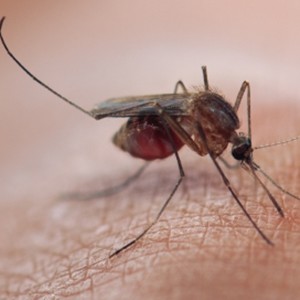Médecins Sans Frontières (MSF), an international humanitarian medical charity, has said it is going to launch a new method in malaria prevention during the rainy season dubbed Seasonal Malaria Chemoprevention (SMC).
According to MSF, SMC is a public health intervention that can reduce the incidence of malaria among young children during the rainy season and has been recommended by the World Health Organization (WHO) since 2012 in countries with high seasonal malaria transmission.
“Children under five years of age are the most at risk of complications and even death if infected with malaria,” said Buai Tut Chol, MSF medical coordinator support in South Sudan. “Complications can include anemia and convulsions, becoming unconscious, or being unable to talk or walk. This is where seasonal malaria chemoprevention has a positive impact by reducing the burden of the disease on children.”
MSF said they carried out the first implementation of SMC in South Sudan in 2019 in collaboration with the Ministry of Health, after extensive experience with similar interventions in other countries.
“The result was that simple and severe cases of malaria declined among children under five years old in the targeted rural areas around Yambio, Western Equatoria State, as did hospitalizations for malaria,” According to MSF. “Over the course of the intervention from July to December 2019, up to 13,689 children received monthly preventive malaria treatment, and the incidence of severe malaria was reduced by 77.1 percent among children under five at Yambio State Hospital.”
This year, MSF plans to collaborate with the Ministry of Health to implement SMC in Aweil, Northern Bahr el Ghazal State, with a similar goal to reduce simple and severe cases of malaria among children under five.
“Nearly every year, we must expand the pediatric ward of Aweil State Hospital with temporary tents to accommodate the hundreds of children who fall seriously ill with malaria during the rainy season,” said Jean Stowell, MSF head of mission for South Sudan. “Seasonal malaria chemoprevention is one way we hope to lessen this burden on children and their families, and we hope it will be expanded further.”
According to MSF, SMC is not the only intervention needed to prevent malaria in South Sudan and stresses that it is critical that people receive insecticide-treated bed nets and primary health care facilities should receive sufficient volumes of rapid diagnostic tests and malaria medications before the rainy season begins.
“Malaria prevention activities must be a priority for international support in South Sudan, including seasonal malaria chemoprevention,” Stowell said. “We hope other health actors will adopt this approach and ensure that it is scaled up across the country.”
SMC involves administering the malaria medications sulfadoxine-pyrimethamine and amodiaquine in 3 doses (once daily doses for 3 days) at each round, with one-month interval from one round to the next, to all children under 5 during the rainy season, when the risk of malaria transmission is at its highest.
Each year across South Sudan, the rainy season brings massive spikes in malaria cases between July and November, with children under five years of age the most affected. Years of conflict and insecurity have kept healthcare out of reach for many people across the country. This, combined, with inconsistent malaria prevention activities, has made malaria the cause of more than one-third of all deaths in South Sudan, according to MSF.




